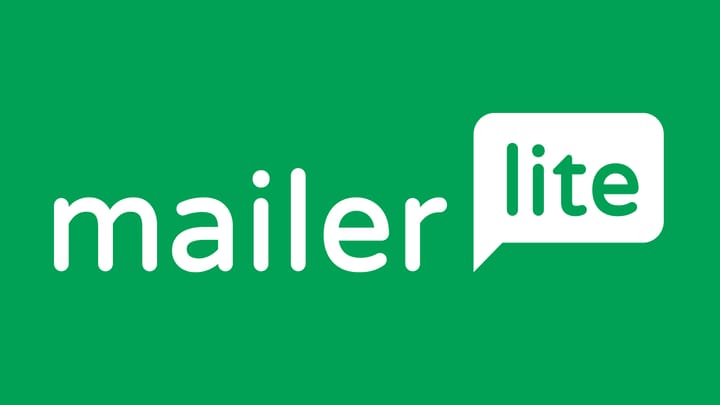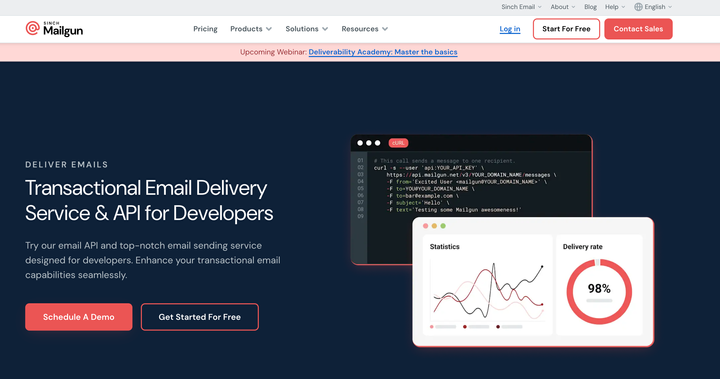Email Marketing Agency vs. In-House: Which One's Right for Your Business?
Should you hire an agency to do your email marketing for you, or should you build your own team?

Let's get to the point: email marketing works.
It's not sexy, and it's not the newest thing, but it always gives you one of the best returns on investment in digital marketing. We get back about $36 to $42 for every dollar we spend. That's really good.
But this is where most businesses get stuck: Should you hire an agency to do your email marketing for you, or should you build your own team?
It's like choosing between hiring a full-time chef and just getting takeout from a great restaurant. Both can make you a good meal, but which one you choose depends on how hungry you are, how much money you have, and how much you care about what's cooking in your kitchen.
The In-House Route: Building Your Own Team
What Does This Actually Mean?
When you go in-house, you hire real people to work for your company. They are full-time employees who eat lunch at your office (or Zoom from their couch) and only work on your email marketing. You're giving these people desks, benefits, and probably too much free coffee, as well as paying their salaries and buying software subscriptions.
Why People Love Having Their Own Team
There's something satisfying about having email marketing people right there with you. It's their responsibility to thoroughly understand your brand, and they do so.
Do you need to change your Black Friday campaign because your competitor just lowered their prices? Your in-house team can get started right away. You don't have to wait for an agency account manager to finish with five other clients.
You keep all of your data at home. You don't have to worry about who has access to what because you won't be sharing customer information with outside vendors. This peace of mind is worth its weight in gold for businesses in healthcare, finance, and other regulated fields.
Also, your email team goes to the same meetings, hears the same office gossip, and gets along with your culture. They don't want to "get" your brand; they live it every day.
The Not-So-Fun Parts
Here's the reality check: it's hard to find good email marketers and even harder to keep them. You need someone who can write captivating copy, knows how to use HTML, analyzes data, designs (or at least knows what good design looks like), and knows how to get things delivered. That's a unicorn, so you'll probably need more than one person.
Let's talk about money. A good email marketing expert will cost you between $50,000 and $70,000 a year. Need a senior strategist? Put in another $30,000 to $50,000. And then there's the software, like email platforms, design tools, analytics, and testing tools. Depending on the size of your list and your needs, you could be paying $500 to $5,000 per month.
And here's something no one tells you: your team will get old. They're only working on your brand, meeting your customers, and fixing your problems. At the same time, the rest of the industry is changing, trying new things, and learning from hundreds of different campaigns. That bigger picture might not be available to your team.
The Agency Option: Bringing in the Pros
How Agencies Actually Work
Think of agencies as email marketing freelancers (but in a good way). They have teams of experts who have worked with a lot of different clients in a lot of different fields. You pay them a monthly fee or project fee, and they take care of some or all of your email marketing.
Some companies handle everything, from strategy and design to copywriting, setting up automation, and analyzing data. Some people only work in one area, like helping you fix your delivery problems or setting up complicated automation flows.
What Makes Agencies Attractive
The biggest advantage? Instant expertise. You're not just hiring one person; you're getting access to a whole team of experts. There is usually a strategist, a copywriter, a designer, a developer, and an analyst. Good luck paying all those people you have on staff.
Agencies have also learned what works for dozens or even hundreds of brands. They know that welcome sequences with three emails work better than those with five emails, that 15–20% of people who open emails from your industry do so, and that Tuesday at 10 AM is the best time for you to send emails. This isn't a guess; it's knowledge that has been tested in battle.
Do you need to get bigger for the holidays? You don't need to put up a "Help Wanted" sign for agencies to deal with it. Need to cut back during slow months? Instead of firing people, you can usually change your retainer.
And the tools! Agencies often have access to expensive enterprise-level software that you would have to pay a lot of money for on your own. They already have everything: heat mapping tools, advanced testing platforms, and deliverability monitoring.
The Downsides You Should Know About
Agencies don't think about your brand all the time like an employee does. They're good, but they have a lot of other clients who want their attention and creative energy as well.
Sometimes talking to each other can feel like a game of telephone. You tell your account manager, who tells the strategist, who then tells the copywriter. That great idea you had? It could lose something in translation.
There's also the time it takes to get used to things. Agencies need time to get to know your brand voice, your customers, and what makes you unique. The first few campaigns might not feel quite right.
And yes, you are giving information to a company outside of your own. This isn't a dealbreaker for most businesses, but they need to have strong contracts and trust.
What Should You Actually Consider?
Let's Talk Money
At first, in-house sounds cheaper because you only have to pay for salaries and software. Not right.
Take into account the costs of hiring (which can be high), benefits (like health insurance, a 401k, and paid time off), training, turnover, and management overhead. The total cost quickly goes up to $90,000 or more from that $60,000 salary. Plus the software, the tools, and that very pricey email service provider contract.
Depending on what you need, agencies usually charge between $2,000 and $15,000 a month. It may seem like a lot, but keep in mind that you're getting a whole team, all of their tools, and all of their experience. That's actually cheaper for a lot of businesses, especially smaller ones, than building things themselves.
Size Matters
If your startup sends emails to 2,000 people twice a month, you don't need to hire a full-time email marketer. You probably can't even pay them to stay busy. A freelancer or an agency is a much better choice.
If your business sends millions of emails every month with complicated segmentation and automation, you probably need both: an in-house team to handle strategy and brand alignment, and an agency to help with special projects or extra bandwidth.
What is the best time to go completely in-house? Usually, mid-sized businesses send emails to lists of 50,000 or more subscribers on a regular basis, and email brings in a lot of money.
Your Industry's Quirks
Some industries just work better with in-house teams. If you're in healthcare, dealing with HIPAA regulations and sensitive patient data, keeping things internal might be non-negotiable.
B2B companies with long, complex sales cycles often benefit from in-house teams who deeply understand the product and can coordinate closely with sales teams.
But if you're in e-commerce, hospitality, or other fast-moving industries, agencies often bring valuable cross-pollination. They're testing strategies with your competitors (awkward but useful) and bringing those insights to your campaigns.
What You've Already Got
Be honest: does anyone on your current team actually understand email marketing? Can they write subject lines that don't sound like spam? Do they know the difference between a soft bounce and a hard bounce?
If you've got zero email expertise internally, building from scratch is hard. An agency can get you results while you learn and potentially build your own capabilities over time.
How Much Does Email Actually Matter to You?
You need serious firepower if email is your main way to make money, like it is for many e-commerce brands and newsletters. That could mean working with an in-house team or a top-tier agency, but you can't do it halfway.
If email is just one part of your marketing plan and is only the 70th most important thing on your list, it makes sense to hire an agency that can do it for you without you having to think too hard.

The Secret Third Option: Why Not Both?
Here's what smart companies are doing: they're mixing it up.
Have a small team in-house (maybe just one person) who is in charge of the strategy, knows the brand inside and out, and is the email champion for the company. Then work with an agency to get things done, add specialized skills, or grow when you need to.
For instance, the person who works for you manages the calendar, works with sales on messaging, and sends out regular emails. The agency builds your complicated automation flows, does the hard work in the fourth quarter, and comes up with new creative ideas.
This mix of in-house and agency work gives you the control and closeness to your brand that you want. It's like having a chef and a meal service, someone who knows exactly what you like and can help you when you're having a dinner party.
How to Actually Make This Decision
Ask Yourself These Questions:
- How much are we willing to spend monthly on email marketing? (Be realistic about total costs, not just salary or retainer.)
- How quickly do we need results? (Agencies = faster start; in-house = better long-term)
- Do we have the expertise to hire and manage email marketing talent?
- How important is control over our data and processes?
- Is email marketing a core competency we want to build, or just a channel we need to execute well?
- Can we keep an in-house team busy and engaged full-time?
- Do we need specialized skills that are hard to find or keep in one person?
Here's a Simple Framework:
Give yourself points:
- If email drives more than 30% of revenue: +2 points for in-house
- If you have fewer than 10,000 subscribers: +2 points for agency
- If you're in a regulated industry: +1 point for in-house
- If you send emails less than weekly: +2 points for agency
- If you have existing marketing team members who could manage vendors: +1 point for agency
- If your industry is highly specialized: +1 point for in-house
Above 4 points? Lean toward agency. Below 2? Consider in-house. In between? Hybrid might be your answer.
What's Coming Down the Pike
Let's peek into the crystal ball for a second.
Everything is changing because of AI. Tools are getting smarter, automation is becoming easier, and to be honest, a lot of the tactical email work is becoming less valuable. This could make agencies more valuable because the ability to think strategically and creatively sets them apart from others, not the ability to make an email template.
Laws about privacy are getting stricter. Apple's Mail Privacy Protection, Google's sender requirements, and the slow death of third-party data are all things that require a lot of knowledge to deal with. If you don't have a full-time compliance person, an agency that keeps track of this stuff might be able to help you out.
It's getting harder and harder to do "good" email marketing. Customers want emails that are personalized, sent at the right time, and don't look like they were made in 2012. To meet these expectations, you either need to invest a lot of money in-house or work with people who do this all day, every day.
The Bottom Line
Here's the truth nobody wants to hear: there's no universally "right" answer.
A scrappy startup and a Fortune 500 company have completely different needs. A B2B SaaS company and a DTC fashion brand operate in different universes. What works for your competitor might be wrong for you.
The real question isn't "agency or in-house?" It's "what does success look like for us, and which model helps us get there?"
Maybe you start with an agency to get momentum, then build in-house as you grow. Maybe you go in-house and bring in agencies for specialized projects. Maybe you commit to one model and optimize the hell out of it.
Whatever you choose, commit to it. Half-assing email marketing with either model will get you half-assed results. Give your team (internal or external) clear goals, the resources they need, and the time to show results.




